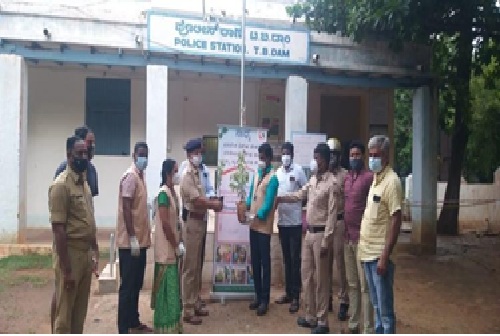
In the last 1.5 years, COVID-19 impacted us all in more ways than we can imagine. It has given us a new perspective on working towards the betterment of society – by helping people and animals who have no means to support themselves. We, at Saadhya, believe that it’s our responsibility, as humans, to help other people/animals by contributing towards their overall wellbeing – both by donating basic resources and by providing mental health support to those who need it.
How has Saadhya helped?
The lockdown due to the pandemic limited the spread of the COVID-19 virus in India. While it did so, it simultaneously reduced the opportunities for people to further grow businesses, daily-wage workers to continue or obtain new work, and it created hardships for underprivileged and disabled people of our society. Not only did it affect humans, but it also affected stray/wild animals.
During the lockdown, we distributed Dry Ration Kits to 70 families of Intellectually challenged children, 106 families of the physically challenged children, 35 transgenders, 44 families of nomads and 31 other underprivileged families in rural and urban Hosapete.
Food distribution was carried out in verified areas, and an awareness of hygiene was created whilst the distribution took place. Additionally, we distributed healthcare kits to the law enforcement in the city who, throughout the lockdown, maintained law and order in the area and helped contain the transmission of COVID 19.
Feeding Voiceless Beings ?
The staff at Saadhya fed animals during the lockdown in Hampi. Hampi, a world heritage site near our center, attracts tourists from all over the world, throughout the year. Tourists feed stray/wild animals, such as dogs, cows and monkeys, in the area. Because of the lockdown, when tourism wasn’t operational, animals faced hardships for basic requirements such as food. We fed these animals as a part of our initiative for Voiceless Beings.
COVID-19 Vaccination Drive for the Specially Abled
As soon as the provision for COVID-19 vaccination of persons above 18 years vaccination was announced, vaccinating differently abled became our priority. After successful discussions with the Taluka (District) hospital administration and consultation with the District Disabled welfare officer, we took the initiative to vaccinate all students in Saadhya above the age of 18 and sent our school vehicles for 2 days to support other the vaccination of other children with disability in our city too.
Mental Health Counselling
Our staff was trained by a mental health counselling professional. Our intention was to help eliminate the panic associated with obtaining facilities like oxygen beds and ventilators, whilst simultaneously arranging for the availability of these resources. Our team also counselled COVID-19 infected patients – to alleviate their pain and to clear any misinformation that might have been spread in rural areas.
